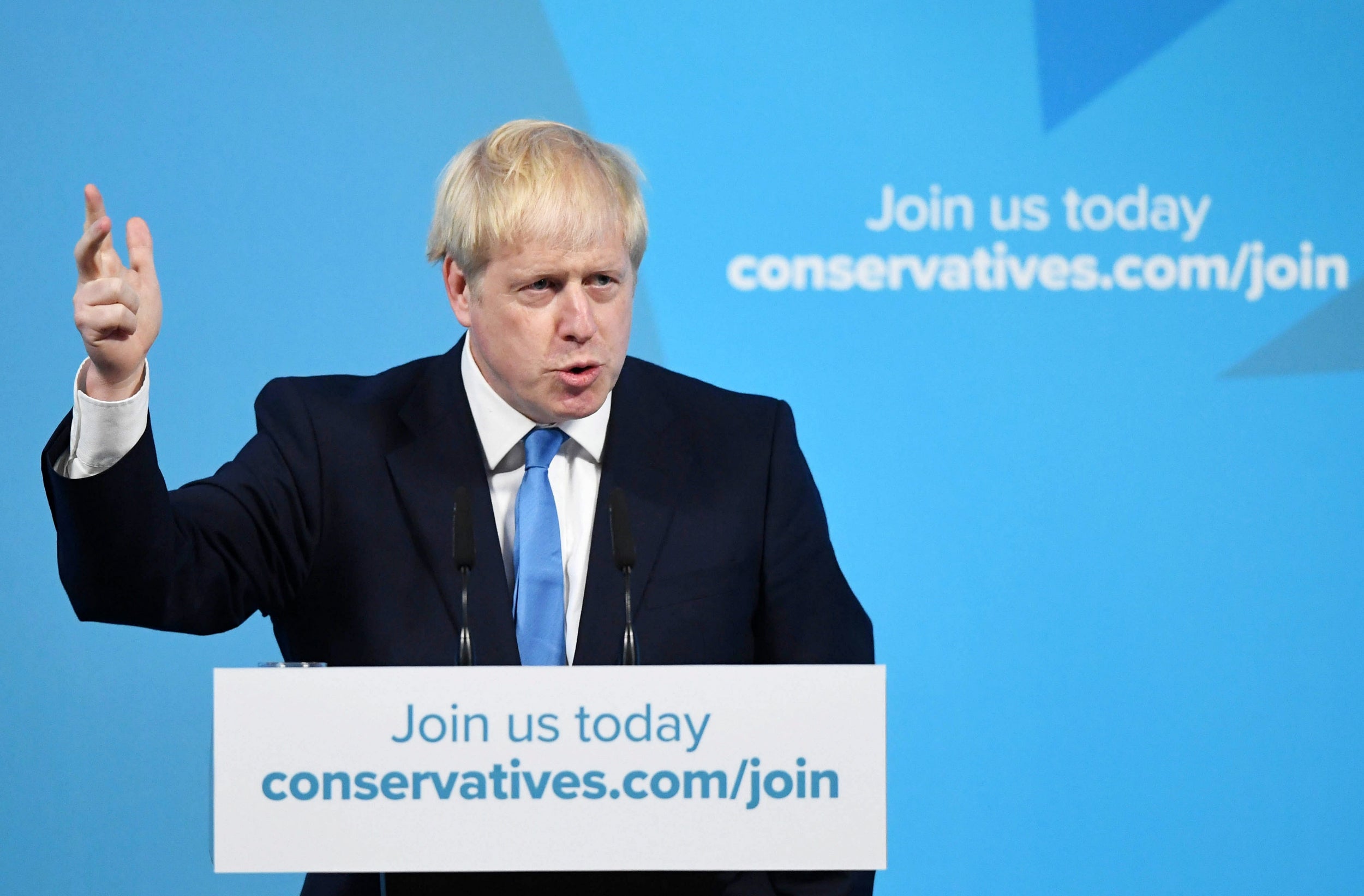Can Boris Johnson mend fences with business?
Inside Business: Relations with the business community weren’t good under Theresa May. They could be about to get a whole lot worse

The one-time party of business has elected a man who once notoriously said “f**k business” as its leader.
Relations between the Tories and the business community reached something of a nadir under Theresa May, reflecting her politics. Hers was a largely right wing, provincial style of Conservatism that has become distrustful of big business and the City.
But if nothing else, the Conservative Party has time and again proven that when you want to scrape the bottom of the barrel you have to execute an extraordinarily deep dive.
Now it has performed that by foisting Boris Johnson upon Britain, the business lobby may soon be feeling nostalgia for the May years.
Is it possible to repair relations? Well, yes. The thing about the business community is that it is, at its core, pragmatic. It’s willing to work with whomever it gets, and would always rather engage in dialogue than indulge in a pissing contest.
If Johnson proves his unfortunate comment was just one of those off the cuff “moments” that have characterised his disreputable career, then it would certainly be possible for him to mend fences, should that be his desire.
First off, however, he needs to avoid a chaotic departure from the EU. His first speech, upon winning the Tory leadership election, didn’t offer much hope on that front, just more bombast.
Relations with business will remain poor if he continues in that vein, if he kowtows to the destructive nationalists he has surrounded himself with. The number one priority of business, which is at the top of the British Chambers of Commerce shopping list published today, is to avoid no deal. The CBI stressed the same thing when it published its “manifesto” earlier in the week. “Everything set out here must be underpinned by an orderly exit from the EU,” is what it said.
When Johnson uttered that fateful off-camera quote, it was subsequently suggested that he was referring to the business lobby, and the CBI in particular. Its impressive general secretary, Carolyn Fairbairn, has become something of a hate figure for Brexiteer extremists.
But it should be remembered that her stance, and that of the BCC and other business lobby groups, is primarily informed by members. Only a minority of the country favours a no-deal Brexit. That minority is even smaller when it comes to the business community.
There are things he could do outside of Brexit. Retaining the business secretary, Greg Clark, would represent a real olive branch, and not just to the business community, which likes and respects him.
But even though he’s said he won’t resign prior to Johnson becoming prime minister, by contrast to Philip Hammond, the chancellor, and David Gauke, the justice secretary, staying in the job is a pipe dream. Johnson will likely to send him to the backbenches. Will his replacement be willing to talk to, rather than at, business, as the Tory Thatcherite ideologues like to do? That remains to be seen.
While there is much it could still do, business is far more tolerant, open and liberal than is a governing party more steeped in Eighties nostalgia than the average episode of Stranger Things. But there is scant sign that business understands what more could be done.
The CBI wants the government to change its tone and offer a commitment to “back business”. This requires more than Johnson or one of his acolytes saying “rah rah business” at the Conservative Party Conference, while failing to listen to what business is actually saying.
There are some potential easy wins for the new administration. A reform to the widely disliked apprenticeship levy and a bit more consistency as regards infrastructure projects, for example. Attention to be given to dealing with the everyday niggles that make doing business difficult. Detail like that isn’t something Johnson has ever been much good at. And his vainglorious and inconsistent approach to infrastructure projects generally may do more harm than good.
Tax? Sure, firms would always like to pay less. But corporation tax is already low by G20 standards. Action to address the running sore of business rates might yield more goodwill.
Regulation? That’s something Tories like to bang on about cutting. Businesses don’t much love it, but what they’d actually really value is consistency on that front. Knowing where they stand and having the ability to plan based on that is key. That’s been notably absent of late and it won’t be available until Brexit is resolved.
If it isn’t, if Britain tips over the cliff edge, the relationship will suffer a brutal blow.
The business community will never get everything it wants and nor, frankly, should it. There are reasons business has fallen so far in public esteem. Runaway pay packages, a tin ear to the social context in which it operates, poor treatment of customers from certain sectors (the utilities in particular). They need to be addressed. They helped to inform May's approach. But business does at least deserve a hearing. It surely deserves a PM who takes its fears about no deal seriously. So do we all. Johnson doesn’t appear to be that PM.
Join our commenting forum
Join thought-provoking conversations, follow other Independent readers and see their replies
Comments